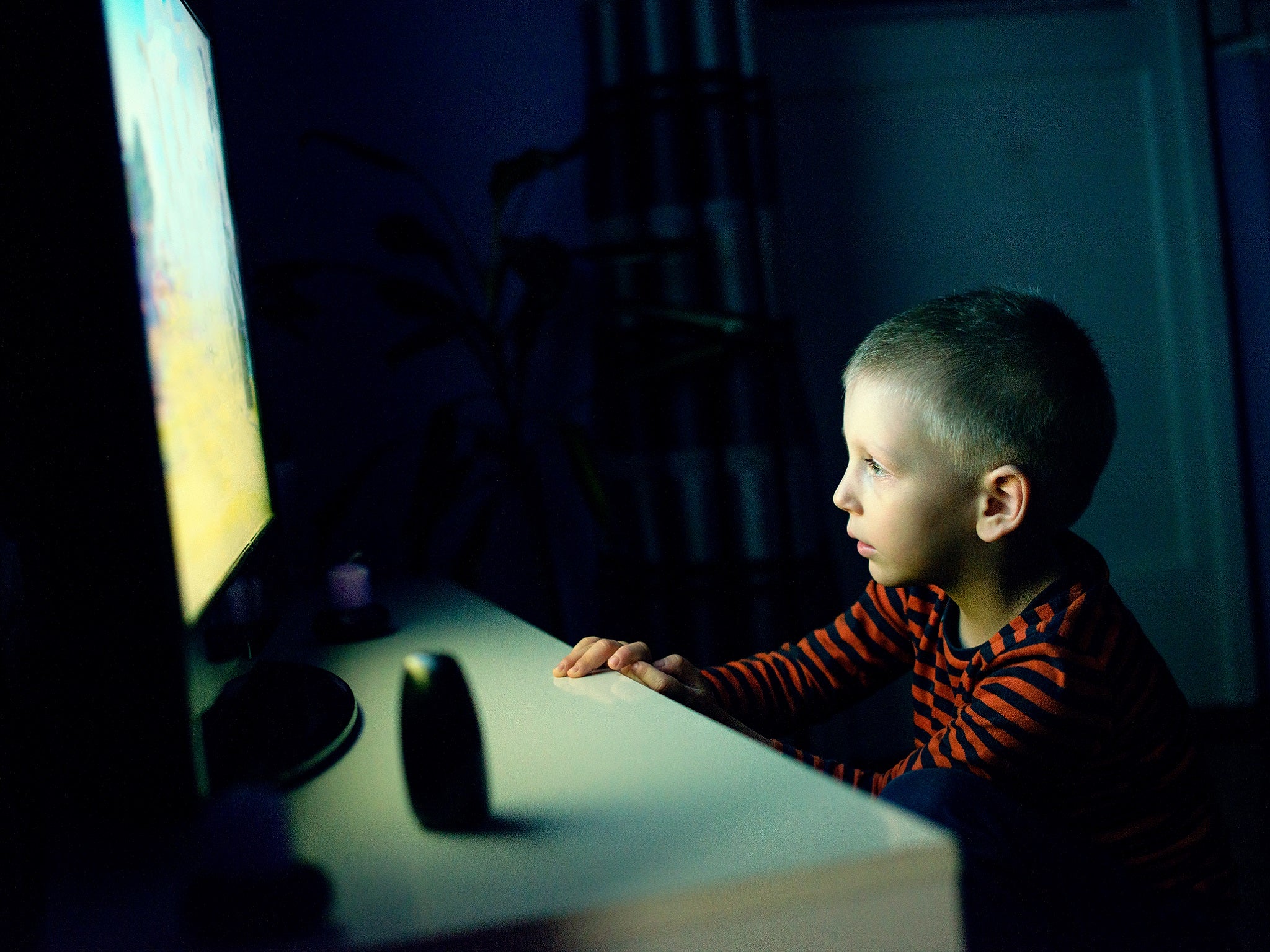Toddler development delayed by too much screentime, research suggests
Study finds amount of time two and three-year-olds spend gazing at screen negatively affects performance at three and five.

Your support helps us to tell the story
From reproductive rights to climate change to Big Tech, The Independent is on the ground when the story is developing. Whether it's investigating the financials of Elon Musk's pro-Trump PAC or producing our latest documentary, 'The A Word', which shines a light on the American women fighting for reproductive rights, we know how important it is to parse out the facts from the messaging.
At such a critical moment in US history, we need reporters on the ground. Your donation allows us to keep sending journalists to speak to both sides of the story.
The Independent is trusted by Americans across the entire political spectrum. And unlike many other quality news outlets, we choose not to lock Americans out of our reporting and analysis with paywalls. We believe quality journalism should be available to everyone, paid for by those who can afford it.
Your support makes all the difference.Too much time in front of the TV and playing computer games can hold back toddlers’ development, researchers have warned.
A study involving 2,400 Canadian children found more screen time was linked to lower scores in “milestone” tests of communication, problem solving, interpersonal skills and physical coordination.
The amount of time two and three-year-olds spent gazing at a screen had a negative effect on their performance at three and five, it found.
There was no evidence to suggest children with developmental problems were allowed more screen time by their parents to control challenging behaviour.
Writing in the journal Jama Pediatrics, the team of Canadian psychologists said: “The present study examined developmental outcomes during a critical period of growth and maturation, revealing that screen time can impinge on children’s ability to develop optimally.”
By the time they start school, a quarter of children show some degree of deficient or delayed development in language, communication, motor skills and “socio-emotional health”, according to the team, led by Dr Sheri Madigan from the University of Calgary.
To investigate the possible link between screen time and developmental delays, the scientists used a standard milestone screening measure which involved questioning parents about their children’s abilities.
Higher levels of screen time at the ages of two and three years turned out to be “significantly associated” with poorer test results at three and five years.
Researchers said the findings suggested too much screen time can hold back children.
They pointed out that child development “unfolds rapidly in the first five years of life”.
“When young children are observing screens, they may be missing important opportunities to practice and master interpersonal, motor and communication skills," the researchers said.
The study found that overall, children watched screens for an average of 17.09 hours per week at age two, 24.99 at age three, and 10.85 at age five.
The authors urged health professionals to work with families to develop “personalised media plans” designed to place boundaries on children’s screen time.
The plans, customised for each family’s needs, would provide advice on setting and enforcing rules and imposing “screen-free zones” and “device curfews” in the home.
British experts said more research was needed but agreed that parents should be encouraged to promote healthy interactive behaviour in their children.
Dr Bernadka Dubicka, from the Royal College of Psychiatrists, said: “This is the first study to show that increased use of screen time in very young children can be associated with slower development. These results add important weight to existing concerns that too much screen time can prevent young children from having the best start in life, by potentially reducing important opportunities for social interactions, physical activity and other experiences necessary for development.”
Join our commenting forum
Join thought-provoking conversations, follow other Independent readers and see their replies
Comments